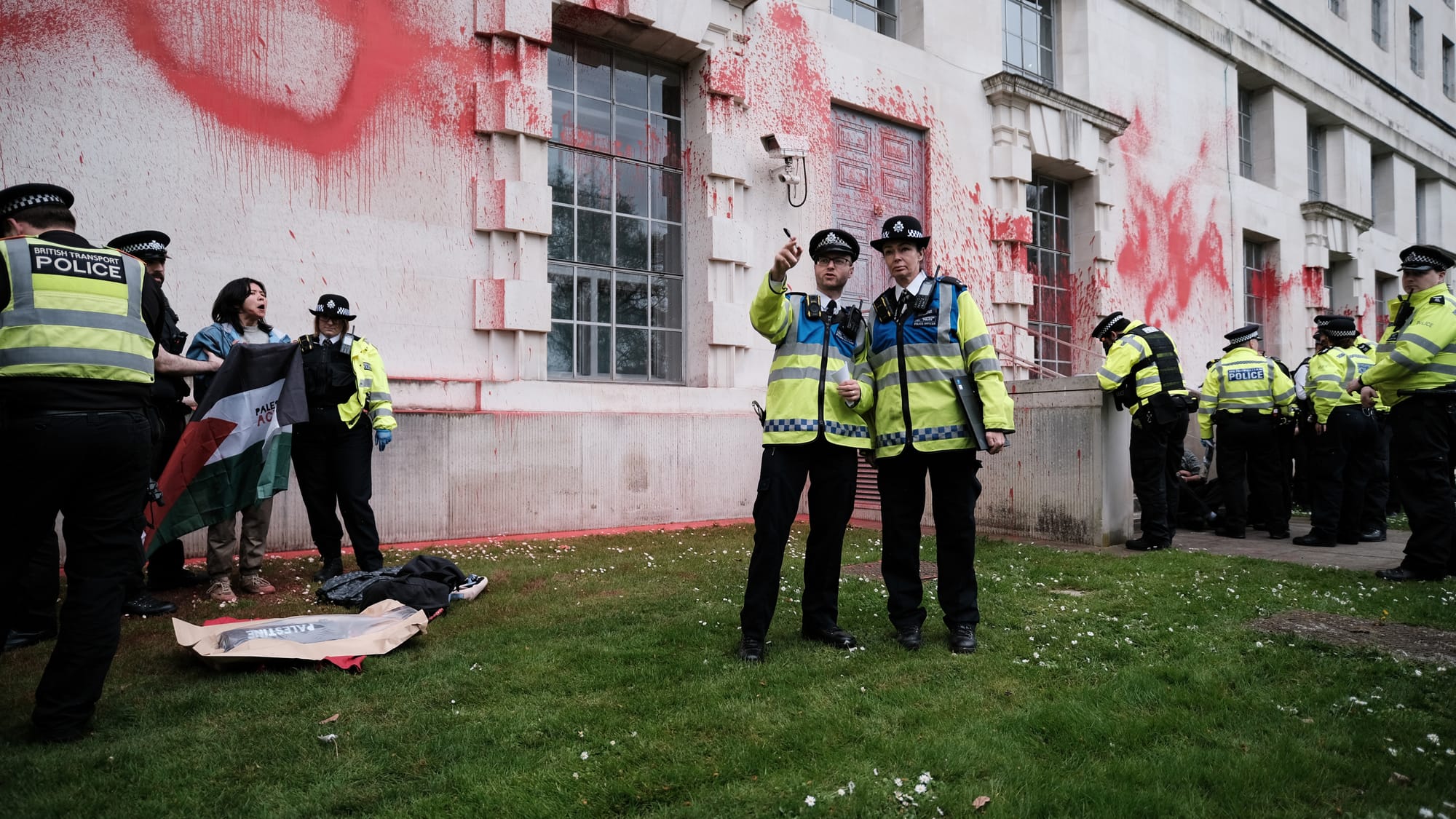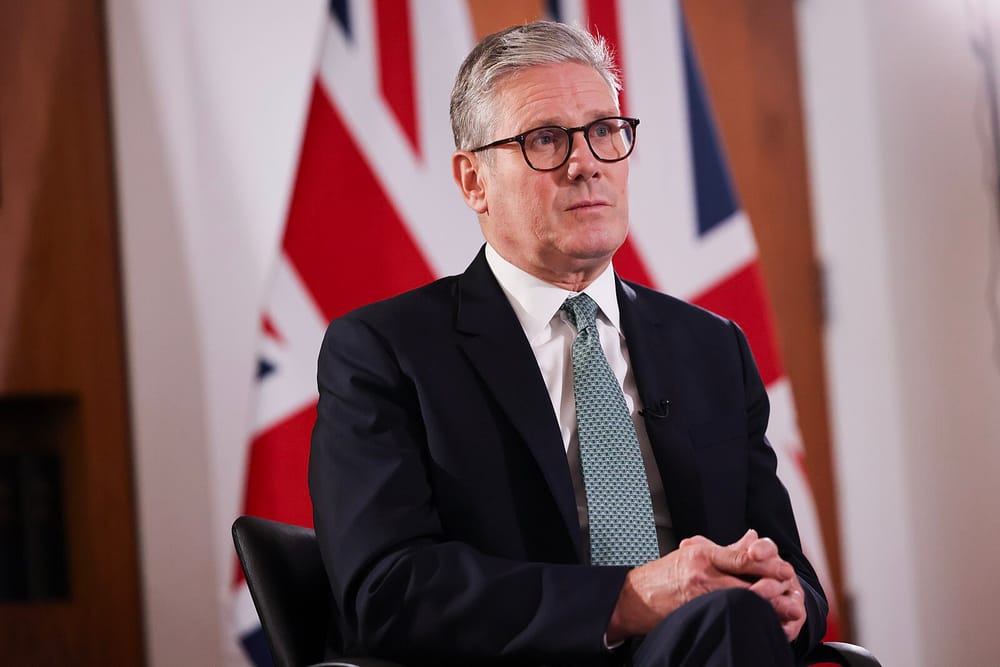No bad words, and no good deeds
Banning direct action won’t make anger at genocide disappear – no wonder people are chanting.

This week, mention of the word “death” appeared to evoke more passion and outrage in the upper echelons of the British government than has been heard throughout Israel’s almost two-year-long genocide. For equalities minister Jacqui Smith, “a line was crossed” when punk duo Bob Vylan led the crowd in calling for “Death to the IDF” at Glastonbury.
The incident was described by health minister Wes Streeting as “revolting” – though he did also admit that the Israeli government would do well to rein in violent settlers in the West Bank and perhaps generally “get its house in order”.
Streeting went on to denounce the chant as a “spectacle” and “shameless publicity stunt” – only a performance of support for Palestinians, he implied, lacking any accompanying genuine, meaningful action.
As if the British government were an advocate for actions over words. The health minister might have forgotten that parliament has succeeded in removing many or most avenues for participating in organised political protest in the UK. The rights of the public to actually do something – to take direct action – has been chipped away at since the introduction of Priti Patel’s draconian police bills back in 2022 and 2023, which radically restricted our ability to cause disruption on the streets.
And now, following a proposal brought by our current home secretary, MPs have voted overwhelmingly in favour of proscribing activist group Palestine Action. This decision represents one of the profoundest erosions of our historic right to act out of conscience and practise political dissent.
If we’re talking about genuine and meaningful action: who, more than Palestine Action, has demonstrated an inexorable commitment to productive, strategic, direct interventions into the UK’s complicity in the genocide in Gaza? Who else is doing the good and right thing? Over the past five years, Palestine Action has succeeded in shutting down two factories producing weapons used by the Israeli Defence Forces, and has caused an estimated total of £55 million worth of damage to military equipment. Their ideology is putting your money where your mouth is – and the state is making them pay dearly for it.
Given this extreme crackdown on civil liberties, the all but suffocation of political movements, and the increasing absence of available vehicles for legal protest, we cannot be shocked when raw and crude anger at injustice comes out as just that – raw and crude. Of course it was at a music festival that such things were expressed in the way that they were: music has always been an unrestrained affair.
While onstage, Pascal Robinson-Forster, the duo’s singer, now under police investigation, is reported to have announced to the crowd, “Sometimes we have to get our message across with violence because that’s the only language some people speak, unfortunately.” It’s certainly true that the more polite registers of political resistance have been falling on deaf ears for a long time, not least the terms and expressions of international law. Indeed, in the middle of this week’s media storm, the UK’s sale of F-35 fighter jet parts to Israel was ruled lawful by London’s high court, despite challenges from various human rights groups.
Because Robinson-Forster was also reported to have spoken onstage of “working for a fucking Zionist”, and because of the lack of clarity about what he meant by death, accusations of antisemitism, from the Glastonbury organisers to the British Chief Rabbi, have taken hold. Perhaps we are definitely getting into murky territory: we could talk about tropes, and we could get into what Daniel May would call “the tangled knot” of much of the British Jewish community’s relationship with Zionism – and specifically with the IDF.
But once we have had these conversations, and long after we have reached our ethical conclusions pertaining to the realm of language, there will continue to be no shortage of clarity about the meaning of death in Gaza – which has double if not triple figures of it coming out every day. It will probably still be possible to discern the backs of the ankles of dead children who were just recently sitting at a seafront cafe, and a few metres away, discover someone’s pack of cards strewn colourfully across the floor, as if to say: I quite easily could have lived.
Language is only going to get bigger and unrulier, as it is stretched to bear not only the weight of these images and the incomprehensible information they represent, but also all the actions that might have been taken to try and stop them. And of course, the very many that have been bravely taken, only to be suppressed. If nothing can legitimately be done when even IDF soldiers themselves are testifying to directives to shoot Gazans queuing for humanitarian aid, then something must be said, and it probably isn’t going to be said very nicely.▼
Kate Greenberg is an editor at Vashti.
Author

Kate Greenberg is a writer, activist, and editor at Vashti.
Sign up for The Pickle and New, From Vashti.
Stay up to date with Vashti.



